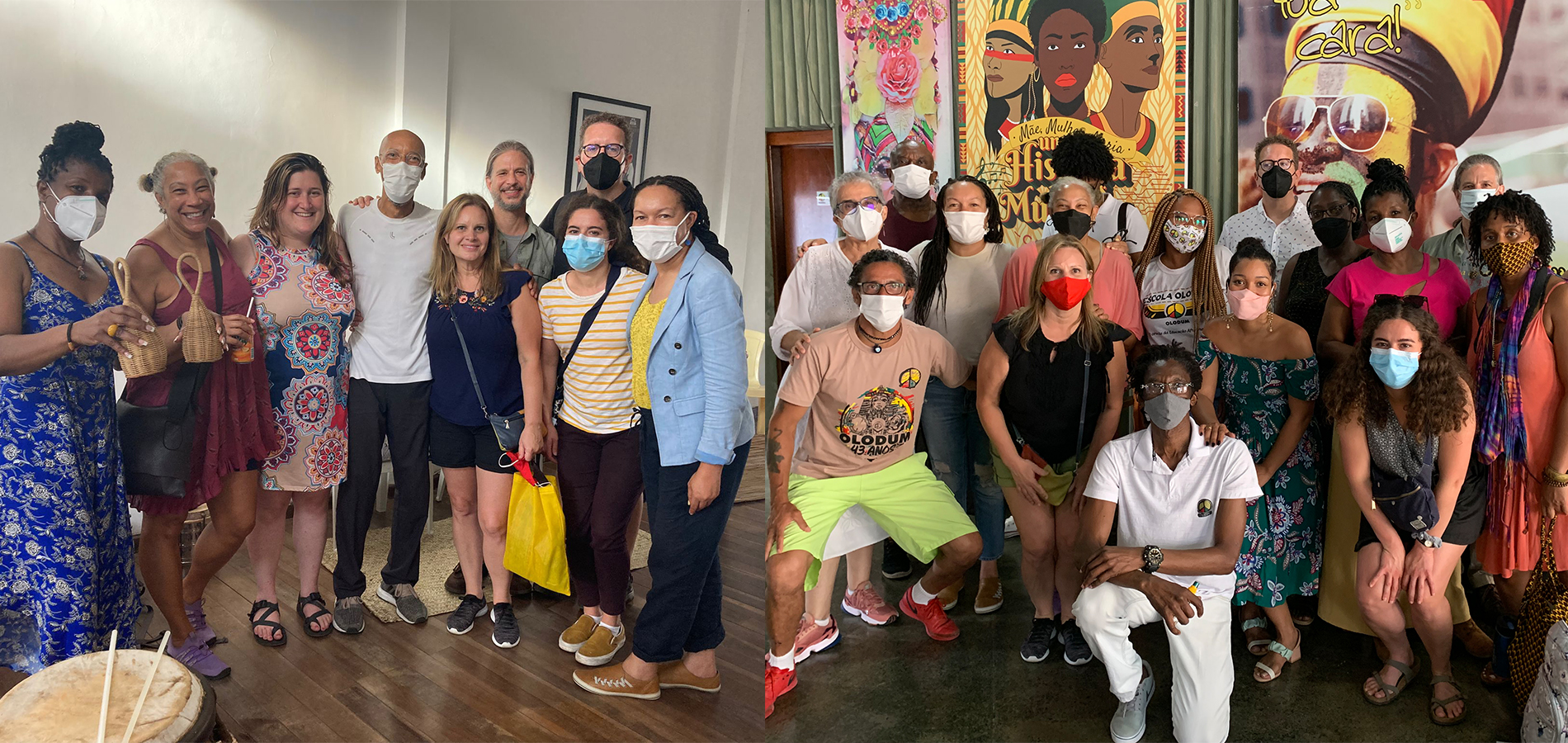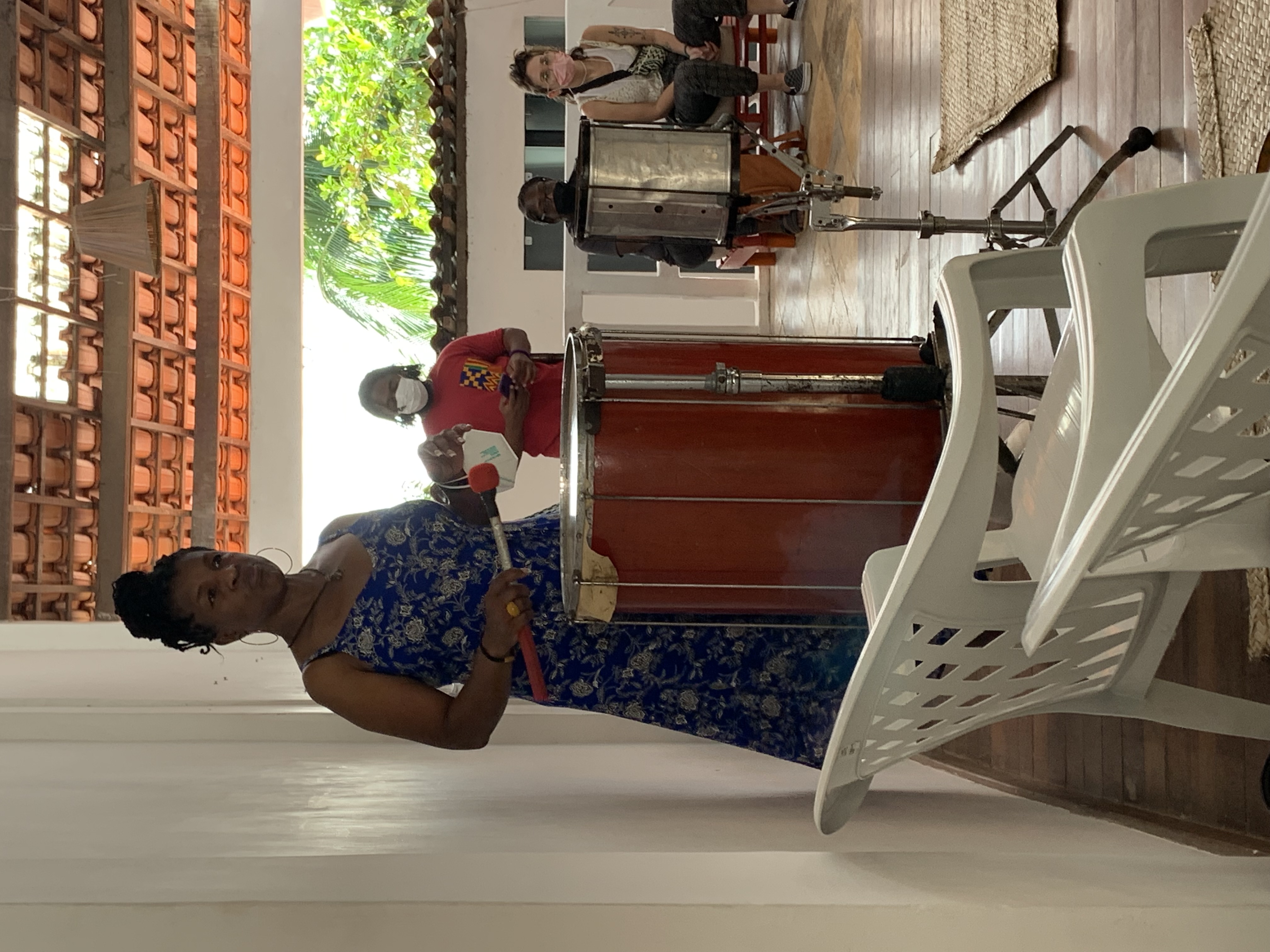Detroit Mercy faculty experience ‘transformative’ trip to Brazil

Last summer, 14 K-12 teachers and faculty members from Detroit Mercy and Hillsborough Community College spent 30 days in Brazil. Attendees traveled to three of the country’s states to conduct academic research and engage with Afro-Brazilian communities and others.
This marked Detroit Mercy’s third Group Projects Abroad to Brazil trip through the Fulbright-Hays program, a grant funded by the U.S. Department of Education and Bureau of Cultural Affairs. It goes to support research and overseas training efforts with a focus on “non-western foreign languages and area studies.”
“The program has to do a couple of things,” Director of Language and Cultural Training Lara Wasner said. “It focuses primarily on language learning and less commonly taught languages. It's to help promote linguistic, cultural growth and knowledge.”
Wasner, who’s also Detroit Mercy’s Fulbright liaison and the study abroad information coordinator, applied for the grant in conjunction with Hillsborough Community College and oversaw all three phases of the program: pre-departure, in-country and the implementation of curriculum projects.
From March through June, those selected for the trip spent three Saturdays a month attending weekly Portuguese lessons, learning from local Brazilian scholars and meeting with past Fulbright-Hays group project abroad participants.
During this phase, they also developed pitches for their curriculum project, which are to demonstrate how attendees will “enhance and internationalize their curricula” with the research gathered while in Brazil.
Next, the participants spent 30 days with one another immersed in Brazil, exploring the culture and researching.
“They had an opportunity to get to know some of the scholars, community residents, activists and students in Brazil and were able be to schedule some time with them to conduct interviews tied to their curriculum projects,” Wasner said.
Upon their return, attendees had until the end of October to submit curriculum projects before publishing them online for others to learn from.
The experience had a profound impact on many of the Detroit Mercy faculty members in attendance, no matter if their motivation for attending was academic in nature or for personal and professional growth.
Promoting empathy
Yvonne King is the Assistant Dean for Diversity, Inclusion and Community Innovation at the College of Health Professionals & McAuley School of Nursing. She is also responsible for student success.
 She was born and raised in Jamaica, but throughout the process of learning Portuguese, she gained an even greater appreciation and empathy for international students, especially those who speak English as a second language.
She was born and raised in Jamaica, but throughout the process of learning Portuguese, she gained an even greater appreciation and empathy for international students, especially those who speak English as a second language.
“I had never felt so incompetent in my adult life until I actually sat in a classroom every day to have language lessons,” King said. “When our students are challenged, they're not challenged because they're academically incapable. They're challenged because they're trying to straddle both sides of the fence, their mother tongue and the English language and trying to combine the two to meet academic standards.”
It gave her new perspective on working with students.
During the trip, she also learned more about the Atlantic slave trade and how important traditions and practices were kept alive elsewhere in the world — most notably the Afro-Brazil religion Candomblé, which combines elements from several African religions and Catholicism.
“I was in the presence of my ancestors, and how they had lived their life and still managed, in spite of all the adversity, to persist,” King said.” That was very transformative for me. Candomblé is not only a religion, it's a way of life. It's a health center. It's a social gathering. It's where people find themselves.”
Coming to a stage near you
Greg Grobis, managing director for the Detroit Mercy Theatre Company and associate professor of Performing Arts, also attended the trip. He went to study Augusto Boal, a Brazilian playwright and political activist.
Now, he’s in the early stages of developing a play from the trip: Unheard Voices: Afro-Brazilian Diaspora.
“It's my main project from the Fulbright scholarship,” Grobis said. “We always try to have an angle to every show that we do that really leans into a component of social justice.
“As a Jesuit and Mercy institution, it is so critical that we are teaching our students to empathize with other people, but also to find issues of oppression and how can we fight for justice so we can eliminate or provide some relief from the oppression.”
In one of Grobis’ classes, students will help him develop a play using Boal’s methods.
During the trip, Grobis and the group visited nine quilombos, settlements in Brazil founded by former slaves.
There are nearly 6,000 quilombos throughout the country today, but oppressive land rights practices prevent those communities from owning the property that they and their ancestors have lived on for more than a century.
In the play, Grobis hopes to highlight what he and others witnessed on the trip, including a quilombo where community members were murdered after lobbying the Brazilian government to remove an unwanted landfill from its property. But presenting Grobis’ perspective is not the main objective of the play.
“More importantly, it will shine a light to illuminate the voices that we met in Brazil, from the politicians to the spiritual leaders to the cultural leaders,” he said. “We want to offer a glimpse into some of the stories that the Fulbright-Hays Program highlighted while we were there.”
Unheard Voices: Afro-Brazilian Diaspora will be performed at the Marlene Boll Theatre at 1401 Broadway Street, Detroit, from April 20-23.
“The trip was an eye-opening experience, but there's so many good things as well,” Grobis said. “This show is also going to hopefully highlight some of the great musicians and poets that we met.”
— By Detroit Mercy Marketing & Communications. Follow Detroit Mercy on Facebook, Twitter and Instagram. Have a story idea? Let us know by submitting your idea.
